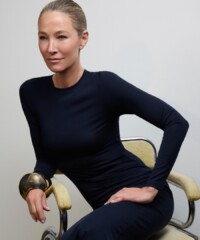Though I am no stranger to fad diets, I do have my limits, skinny denim be damned. I do not skip meals on purpose. I don’t even skip snacks. Last year, I settled on a modified version of the Paleo diet as the way of eating that, for me, felt the most effective while being the least depriving—the least, that is, like a diet. I lost some extra weight, had more energy, could work with most restaurant menus and did not have to give up either fruit or bacon. I could snack all I wanted.
But there were those last five-ish pounds that never really went away, even when I cut out the snacks and, fine, the bacon. I’d already given up pizza and sushi; what more did they want from me? To stop eating entirely?
Maybe.

For years, nutritionists have been warning clients about the dangers of going too long without food, arguing that starving yourself in this way leads to a drop in blood-sugar levels, which leads to slower metabolism, which leads to stalled weight loss. And yet strategic fasting—from forgoing breakfast on the regular to subsisting on water for a week—is now being touted as the secret to looking better as well as thinking quicker and living longer. Numerous studies, including a 2005 paper in the American Journal of Clinical Nutrition, have examined the benefits of occasional fasting, which can include weight loss, lower cholesterol, a decreased risk of cancer and better brain function. “Going without food for longer than you’re used to builds up the body’s immune response and targets inflammation,” says John Ratey, MD, associate clinical professor of psychiatry at Harvard Medical School and author of the forthcoming book Go Wild, about the physical and cognitive benefits of maintaining a primal lifestyle. “It’s a good stressor—similar in that way to exercise—and is helpful for focus and mood,” he says. Not to mention that last bit of muffin top.
The holiday season had turned my “last five” into something closer to the last ten. Just as troubling, I needed at least two cups of coffee before I could form a sentence, spoken or otherwise. While posh centers like the TrueNorth Health Center in Santa Rosa, California, and Austria’s Viva Mayr Clinic charge thousands a week for supervised fasts, I figured I could fast on my own for free. It’s pretty basic, after all: There’s no counting calories. Just hours.
Though many people practice an alternate-day approach—eat one day, skip the next—I found that going an entire calendar day without food was not manageable. On my third attempt, I finally made it 24 hours, if you don’t count the most delicious chewable vitamin I allowed myself at hour 18. I was really bored, and boring, too—a pretty worthless dinner companion. Still, it took only three 24-hour fasts over the course of a week to see a real difference: My stomach was flatter, my skin less dry, and when I wasn’t thinking about food, I really was thinking more clearly about work.
Opponents of fasting argue that depriving yourself can lead to binging and to increased levels of the “stress hormone” cortisol, which in some people can cause the body to hold tighter to calories. A better approach for those contemplating fasting, says Manhattan internist Richard Ash, MD, is to opt for a once-a-week liquid diet instead. “You won’t get the drop in blood sugar, but you’ll still get the beneficial detoxification,” he says, and indeed one study found that intermittent fasting could lower glucose tolerance, a possible metabolism-crasher, in women. And, of course, it’s important to remember that there’s plenty of research supporting the physical and mental benefits of a healthy, balanced diet of actual food.
But facts are facts, and after a month, I’m down five pounds, thanks to what amounts to essentially a three-day-a-week diet. Hard to beat that. Meanwhile, I’ve lost the coffee but not the focus. I’ve given up the late-night snack shift, too, because fasting has taught me to eat when I’m hungry (and what being hungry really feels like) and not because it’s what you do while watching Downton Abbey. I’ve decided on a moderate approach going forward: a full day, or at least a few meals, a week, and an overall mindfulness the rest of the time. “You will feel more clarity,” Ratey had told me, and he wasn’t wrong.








































